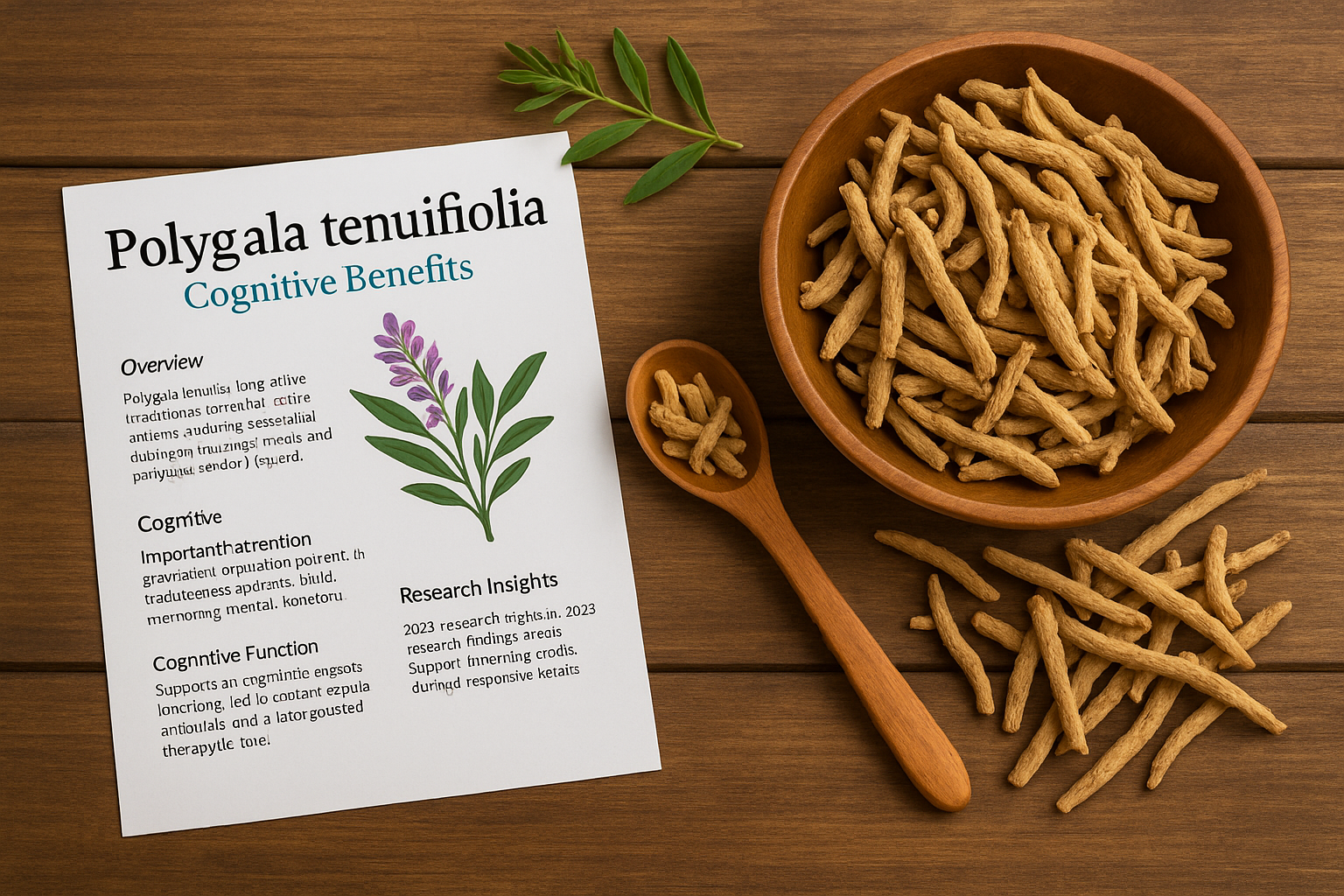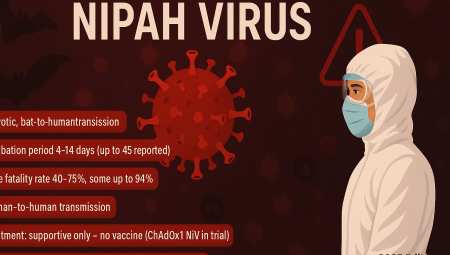Polygala tenuifolia Cognitive Benefits: The Forgotten Root That Boosts Brainpower in 2025
Introduction
In the pursuit of sharper minds and longer attention spans, one traditional remedy is making a scientific comeback in 2025—Polygala tenuifolia. Often overshadowed by turmeric and ginseng, this herb, known as “Yuan Zhi” in Traditional Chinese Medicine (TCM), is being reexamined for its cognitive-enhancing properties. With growing interest from biohackers, researchers, and aging populations, the question arises: Can Polygala tenuifolia truly boost brain performance?
What Is Polygala tenuifolia?
Polygala tenuifolia is a perennial herb native to China, Korea, and Japan, traditionally used to calm the spirit, resolve phlegm, and enhance mental clarity. Modern science now recognizes it as a potential nootropic—a substance that can improve cognitive functions like memory, focus, and learning.
Historical Use in Traditional Chinese Medicine
For over 2,000 years, Yuan Zhi has been used in traditional medicine to treat insomnia, forgetfulness, depression, and even seizures. It was often prescribed in formulas like Kaixin San, a popular prescription for emotional and mental well-being.
Active Compounds in Polygala tenuifolia
The root contains bioactive compounds such as tenuifolin, senegenin, and polygalacic acid—each with known neuroprotective and anti-inflammatory effects. These compounds interact with neurotransmitter systems, particularly acetylcholine and dopamine, which are crucial in memory and emotional regulation.
Cognitive Benefits of Polygala tenuifolia
Memory Enhancement
Studies suggest that Polygala tenuifolia improves short-term and spatial memory by enhancing cholinergic transmission. In one 2024 study, aged mice treated with Polygala extract showed improved memory retention in maze tests. Another clinical trial demonstrated enhanced verbal memory and working memory in middle-aged participants after 6 weeks of supplementation.
Neuroprotection and Brain Cell Growth
Polygala’s antioxidant and anti-inflammatory effects help protect neurons from damage caused by oxidative stress. It also promotes BDNF (Brain-Derived Neurotrophic Factor) expression, which aids in neurogenesis and the repair of damaged neural pathways.
Mood Stabilization and Anti-Anxiety Effects
Traditionally used to treat insomnia and emotional distress, Polygala has shown anxiolytic and mild antidepressant effects in both animal and human studies. Its ability to regulate cortisol and serotonin levels makes it promising for mood and anxiety disorders, and potentially for PTSD.
Focus and Attention
By modulating dopamine and norepinephrine, Polygala may enhance attention span, particularly under stress or fatigue. Studies show improved reaction time and alertness in cognitive performance tasks.
Scientific Research and Clinical Trials
Recent Human Trials
A 2023 double-blind study conducted in Seoul found that daily doses of Polygala tenuifolia extract improved working memory, executive function, and mood regulation in adults aged 40–65 after 8 weeks. Another randomized trial published in 2024 showed significant improvements in learning performance among university students.
Ongoing Investigations
As of 2025, over 12 ongoing clinical trials are registered globally, exploring its applications in Alzheimer’s prevention, ADHD support, sleep improvement, and general cognitive enhancement. Research is also focused on combining Polygala with other herbs to evaluate synergistic effects.
Safety Profile
Polygala is generally considered safe when used in moderate doses. Side effects are rare but may include mild digestive discomfort, vivid dreams, or mild irritability when taken in high doses. Pregnant and breastfeeding individuals should avoid its use pending further research.
How to Use Polygala tenuifolia
Supplement Forms
- Capsules and tablets: Contain standardized extracts for precise dosing.
- Tinctures: Alcohol-based or glycerin-based, allow for fast absorption.
- Powdered root: Can be used in teas, smoothies, or capsule form.
Recommended Dosage
Typical dosages range between 300–600 mg/day in extract form. For cognitive enhancement, clinical studies suggest 400 mg/day taken with food. Always consult a healthcare provider before starting new supplements.
Best Stacking Options
- With Lion’s Mane for neurogenesis and memory retention.
- With L-Theanine for increased focus without overstimulation.
- With Bacopa Monnieri for synergistic effects on working memory.
- With Rhodiola Rosea to combat mental fatigue and enhance stress resilience.
What are the cognitive benefits of Polygala tenuifolia?
Polygala tenuifolia may enhance memory, reduce anxiety, and support brain cell growth. It acts on neurotransmitters like acetylcholine and dopamine, promoting focus, learning ability, and emotional balance. It’s considered a natural nootropic.
Pro Tips: Using Polygala tenuifolia for Mental Performance
- Start with 300 mg/day and monitor how your body reacts.
- Combine with other adaptogens like Rhodiola or Ashwagandha for stress support.
- Use in the morning; it can be mildly stimulating.
- Choose third-party tested supplements for quality assurance.
- Track changes in focus, mood, and sleep with a journal.
- Cycle every 4–6 weeks to prevent tolerance build-up.
- Avoid caffeine-heavy stacks to prevent overstimulation.
Frequently Asked Questions (FAQ)
Can Polygala tenuifolia be taken daily?
Yes, it’s safe for daily use in moderate amounts. Long-term safety studies are ongoing, so it may be wise to cycle usage or consult a medical professional.
Is it better than ginkgo or bacopa?
Polygala is not necessarily better but complements these herbs. Ginkgo supports circulation, Bacopa aids in memory consolidation, and Polygala strengthens emotional resilience and attention.
Does it help with sleep?
Though mildly energizing, Polygala can reduce overthinking and stress-related insomnia. Taking it earlier in the day may contribute to better sleep quality at night.
Is it legal and accessible?
Yes, it’s legal in most countries and available through licensed herbal vendors, Asian apothecaries, and reputable online nootropic retailers.
Can teenagers use Polygala for studying?
There’s limited research on adolescent use. It’s best to consult with a healthcare provider, though low doses may be tolerated safely under supervision.
💬 Have you tried Polygala tenuifolia for cognitive support? Share your experience or questions in the comments below!



